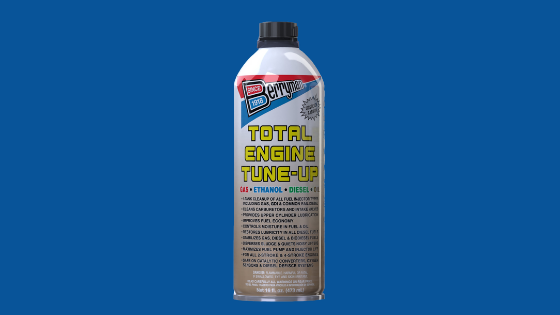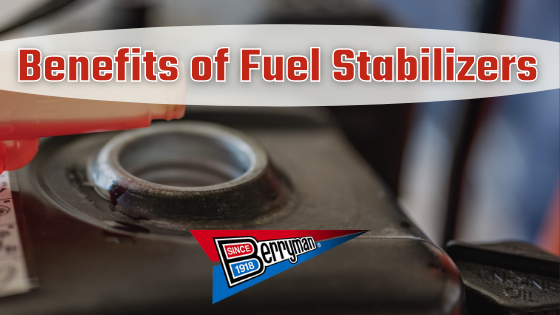An important piece of long-time vehicle storage is making sure the fuel in your tank maintains full strength and keeps fresh, to prevent deterioration or gumming up the fuel system.
When a seasonal machine is going to sit with gas in the tank, waiting in your garage for months without being used, it needs proper preservation. Not adding a fuel stabilizer into your tank before storing it away means that you could discover an unpleasant surprise when finally starting up your engine again.
So don’t forget to add “fuel stabilizer” to your winter preparation list!
Fuel is a perishable commodity.
It’s good to know about the shelf life for both gasoline and diesel fuels. Over time, these liquid materials will break down and deteriorate.
In just months, untreated gas can fade in potency, varnish the carburetor, and/or prevent the internals of your fuel system from working the way they’re meant to.
Unwanted chemical reactions within aging fuel might also mean trouble over time! For instance, the evaporation of some volatile components within stored fuel might leave behind harmful deposits in your engine, or stop your fuel from igniting properly in the engine after 3+ months.
But using the correct fuel additive can eliminate any need to drain your fuel before storing the engine. With a fuel stabilizer to keep your fuel fresh, you can preserve a properly balanced, perfectly stable environment.
There are a different types of fuel stabilizers for different applications.
While every fuel stabilizer has the same primary goal in mind, each is formulated differently, for different key goals. The specific areas of protection may change based on storage longevity, application, or performance/efficiency goals.
Some of the most commonly-stored machines — that may need a fuel stabilizer during storage — include: gasoline and diesel engines, found in classic cars, motorcycles, UTVs, snowblowers, and even generators, as well as two-stroke motors, found in chainsaws, dirt bikes, snowmobiles, and certain water pumps.
Please note that certain brands of fuel stabilizer are formulated to be used only with gasoline or diesel. Others are dual purpose.
You should always read the labels provided and follow the product instructions.
How much fuel stabilizer should I use?
“Directions on every bottle of stabilizer tell you how much to add for a given amount of fuel, and you’ll find that the quantities specified are small. A tablespoon or two in a lawnmower or chainsaw gas tank is enough to allow gasoline to burn cleanly even after years of storage. One small bottle of stabilizer preserves a full tank of fuel in a car or truck.” – Steve Maxwell, Family Handyman
Help maintain performance and long-term functionality with fuel additives.
Some fuel stabilizers can extend the life of your car’s fuel for as long as two years!
Below are some ways they’re known to help with the trouble-free operation of engines stored for long periods of time:
- → Saving fuel that’s left in the motor (instead of having to drain it)
- → Cleaning out impurities in the gas
- → Preventing fuel from forming sticky resins
- → Protecting your vehicle from corrosive condensation build-up
- → Eliminating cold starts
FAQ: Can you leave a car in storage with a full tank of gas that has Berryman® B-12 Chemtool® Carburetor, Fuel System and Injector Cleaner mixed in it?
As an effective fuel tank cleaner, B-12 Chemtool® (part #0116) helps to dissolve gum, varnish, and other fuel residues from the entire fuel system. However, it doesn’t have any stabilizer in it. It’s 100% strong solvent!
It is designed to help remove water from the gas tank (to prevent rusting), however, it will not remove rust from the gas tank or fuel lines. So, while B-12 Chemtool is beneficial to use it in stored fuel, it is also not a fuel stabilizer by itself.
We recommend 1 fl. oz per gallon every third tank during regular vehicle use.
The most active fuel stabilizer Berryman® offers is the Total Engine Tune-Up for Gas and Diesel (part #0316), which stabilizes gasoline and diesel fuels for one year.

For use in any season, #0316 disperses moisture in the fuel tank, cleaning both fuel injectors and carburetors. In the crankcase, our Total Engine Tune-Up also dissolves and disperses sludge for better lubrication and longer oil life!
Looking for more ways to keep your fuel system in tip-top shape? Check out these related blogs you may also be interested in:


